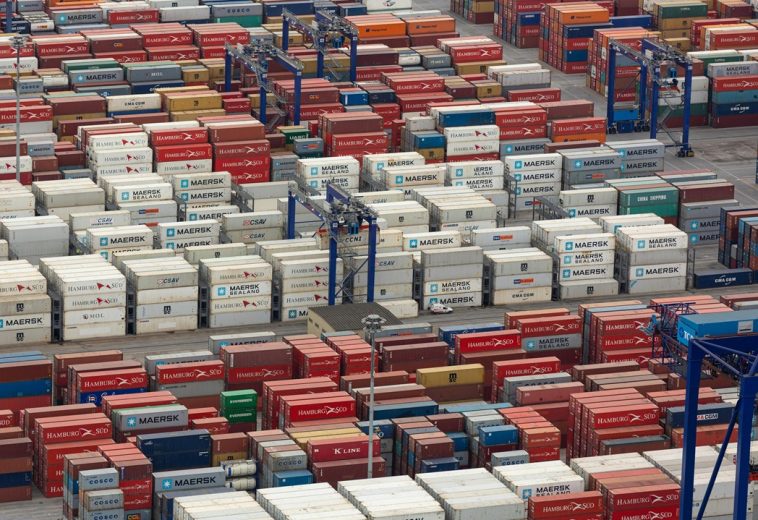The world views Nigeria’s oil industry as a paradox: it is both an anchor and a liability. For decades, it has been the driving force behind the country’s economic development, contributing significantly to its GDP and global influence. Nigeria appears to be leaning into this paradox, as it continues to rely heavily on oil while making slow efforts to diversify its economy.
The Current State of Nigeria’s Oil Industry
As of 2024, Nigeria is producing 1.8 million barrels per day (bpd)—a figure that still lags behind its true capacity. With reserves of 37.5 billion barrels, Nigeria is one of the world’s top 10 holders of crude oil, a powerhouse by any standard. But despite this, the sector faces multiple hurdles—oil theft, inadequate infrastructure, and regulatory inefficiencies—that prevent Nigeria from fully capitalising on its assets.
READ ALSO: Major Oil Producing Countries in Africa
Security concerns in the Niger Delta, a region infamous for oil theft and pipeline sabotage, continue to disrupt production. Oil theft alone is estimated to cost the country around $3 billion annually. Yet, in the face of these challenges, there are signs of progress. Government initiatives are beginning to stabilise the industry, paving the way for future growth.
Government Initiatives and Legislative Reforms
The Nigerian government has embraced change with reforms designed to unlock the sector’s potential. The Petroleum Industry Act (PIA), passed in 2021, is the cornerstone of this transformation, streamlining regulations, promoting transparency, and attracting much-needed investment. The PIA signals a shift towards a more modern and efficient regulatory framework, positioning Nigeria as an attractive destination for foreign investment.
Security efforts have already made tangible progress. Operations like Delta Sanity have helped reduce oil theft, pushing production from 1.4 million bpd to 1.8 million bpd. But the journey doesn’t stop there—Nigeria aims for 3 million bpd by 2025, an ambitious target that requires ongoing investment in infrastructure and security. These efforts are not without their challenges, but they offer a clear path to a more secure and productive future.
Opportunities in Nigeria’s Oil and Gas Sector
1. The Dangote Refinery: A Game-Changer The completion of the Dangote Refinery in 2025 promises to revolutionise Nigeria’s oil landscape. With a capacity of 650,000 barrels per day, it will become the world’s largest single-train refinery. This development has the power to shift Nigeria from being a net importer of refined products to a self-sufficient producer, saving billions in foreign exchange and driving local economic growth. Beyond its economic impact, the refinery will create thousands of jobs and boost energy security. Though ramping up to full capacity may face hurdles, the refinery’s promise is undeniable.
2. Natural Gas: Nigeria’s Untapped Potential While crude oil has long been Nigeria’s focus, its vast natural gas reserves—over 200 trillion cubic feet—are an underexploited asset. The coming years will see greater investment in Liquefied Natural Gas (LNG) infrastructure, expanding Nigeria’s export capacity and meeting rising domestic energy needs. Nigeria LNG, the country’s premier gas exporter, is set to increase its output, pushing towards 40 million tonnes per year by the end of the decade. This growth will open new avenues for foreign investment and position natural gas as a cornerstone of Nigeria’s diversified energy future.
3. Renewable Energy: A Green Horizon As the world moves towards a greener future, Nigeria is taking bold steps towards integrating renewable energy into its energy mix. With a commitment to achieving net-zero emissions by 2060, the government is implementing policies that encourage low-carbon practices across the sector. Oil companies seeking exploration licenses must now demonstrate their commitment to reducing emissions, signalling a clear shift towards sustainability. This transition opens up new opportunities for investment in solar, wind, and hydroelectric power, which will drive industrial growth and energy access across the country.
Challenges Facing the Nigerian Oil Industry
1. Security Concerns and Oil Theft Oil theft continues to plague the Nigerian oil industry. Criminal syndicates in the Niger Delta region engage in pipeline sabotage, illegal diversions, and theft. Despite military interventions like Delta Sanity, the financial toll remains high. Addressing this issue requires an integrated strategy—secure pipelines, enhanced surveillance, and stronger community engagement. The fight against oil theft is critical not only for preserving revenue but also for ensuring long-term stability in the industry.
2. Environmental Degradation and Social Unrest The environmental impacts of oil extraction in the Niger Delta are stark—oil spills, gas flaring, and soil contamination have caused widespread ecological damage. This environmental degradation has been compounded by social unrest, as local communities demand a fairer distribution of oil revenues and better environmental stewardship. The Nigerian government, along with oil companies, must step up efforts to mitigate these issues through more robust environmental policies and by ensuring that the benefits of oil extraction are equitably shared.
3. Over-reliance on Oil Revenues Nigeria’s dependence on oil revenues makes it vulnerable to global price fluctuations. As the world increasingly shifts towards cleaner energy, Nigeria must accelerate its economic diversification efforts. Expanding sectors like agriculture, technology, and manufacturing will be crucial to reducing reliance on oil. By nurturing these non-oil industries, Nigeria can build a more resilient and sustainable economy that thrives alongside its energy sector.
Economic Forecast and Strategic Outlook for 2025
The World Bank forecasts Nigeria’s GDP growth at 3.7% in 2025, largely driven by developments in the oil and gas sector. However, Nigeria must prepare for external shocks, including oil price volatility and the global energy transition. Diversification into sectors such as technology, renewable energy, and gas infrastructure will be critical to ensuring long-term economic stability.
The key challenge will be transforming its oil wealth into a sustainable growth model that extends beyond crude production; one that secures growth, job creation, and resilience in the face of global shifts. The paradox of Nigeria’s oil industry remains, but it holds the potential for transformation into a model of balanced, forward-thinking progress.




